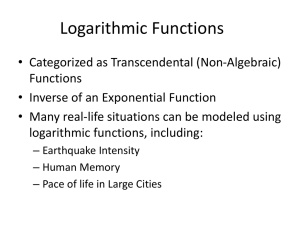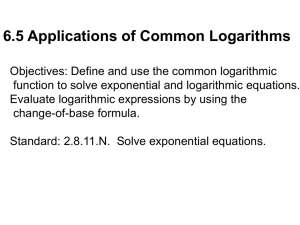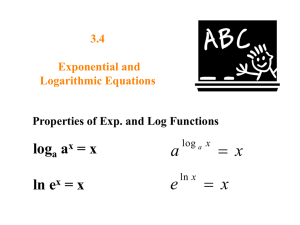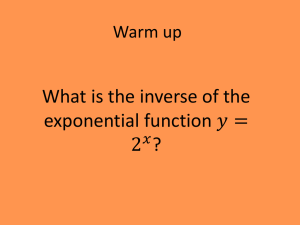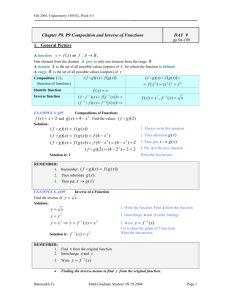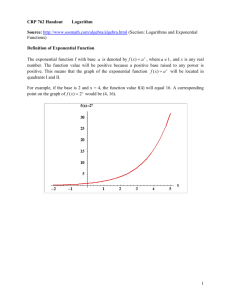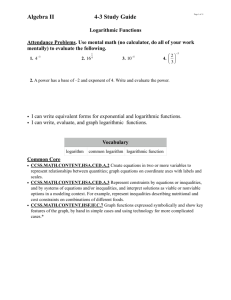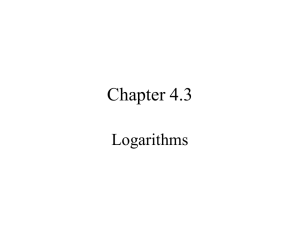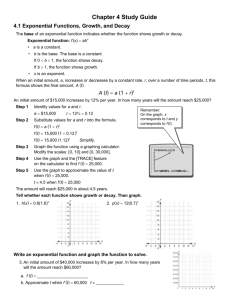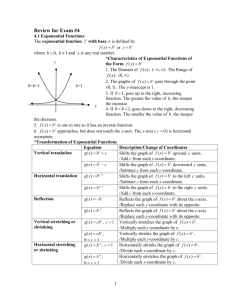7.3 Logarithmic Functions - ASB Bangna
advertisement
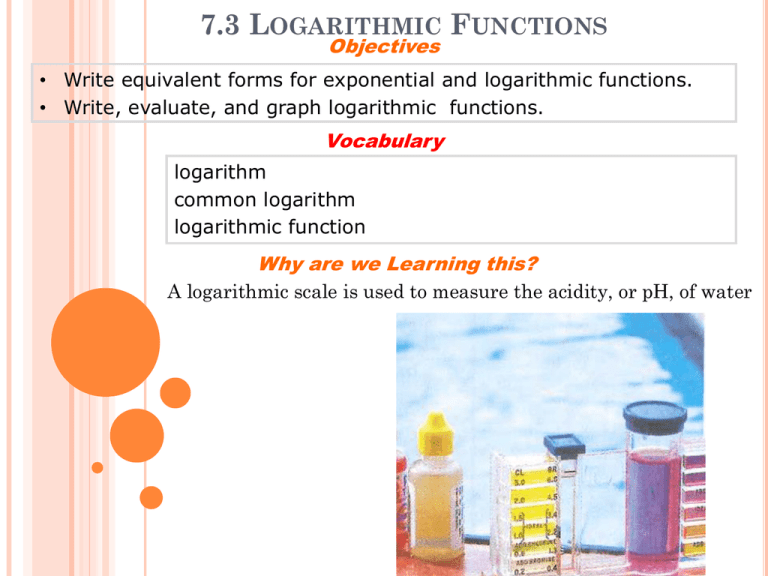
7.3 LOGARITHMIC FUNCTIONS
Objectives
• Write equivalent forms for exponential and logarithmic functions.
• Write, evaluate, and graph logarithmic functions.
Vocabulary
logarithm
common logarithm
logarithmic function
Why are we Learning this?
A logarithmic scale is used to measure the acidity, or pH, of water
WHAT IS A LOG?
How many times would you have to double $1 before you had $8?
How many times would you have to double $1 before you had $512?
2x = 512
The inverse operation that undoes raising a base to an exponent is
called finding the logarithm.
A logarithm is the exponent to which a specified base is raised to
obtain a given value.
Reading Math
logb a= x: “the log base b of a is x.” Notice that the log is the exponent.
A log with base 10 is called a common logarithm. If no base is written
for a log, the base is assumed to be 10. For ex, log 5 = log105.
Example 1: Converting from Exponential to Logarithmic Form
Write each exponential equation in logarithmic form.
Exponential
Equation
Logarithmic
Form
35 = 243
log3243 = 5
1
2
log255 =
25 = 5
1
2
The base of the exponent becomes the
base of the logarithm.
The exponent is the logarithm.
104 = 10,000
6–1 =
ab = c
1
6
An exponent (or log) can be negative.
The log (and the exponent) can be a
variable.
Example 2: Converting from Logarithmic to Exponential Form
Write each logarithmic form in exponential equation.
Logarithmic
Form
Exponential
Equation
1
log99 = 1
9 =9
log2512 = 9
29 = 512
log82 =
log4
1
16
1
3
= –2
logb1 = 0
The base of the logarithm becomes the
base of the power.
The logarithm is the exponent.
1
3
8 =2
A logarithm can be a negative
number.
Any nonzero base to the zero power is
1.
Evaluate by converting to an exponential statement:
Log1010=
Log171=
A logarithm is an exponent, so the rules for exponents also apply to logs.
Example 3A: Evaluating Logarithms by Using Mental Math
Evaluate by using mental math.
log 0.01
The log is the exponent.
log5 125
10? = 0.01
Think: What power of 10 is 0.01?
10-2 = 0.01
Go back to the log expression:
log 0.01 = –2
log5 1
5
Because logarithms are the inverses of exponents, the
inverse of an exponential function, such as y = 2x, is a
logarithmic function, such as y = log2x.
You may notice that the domain
and range of each function are
switched.
Domain
Range
Example 4A: Graphing Logarithmic Functions
Use the x-values {–2, –1, 0, 1, 2}. Graph the function and its
inverse. Describe the domain and range of the inverse function.
f(x) = 1.25x
Graph f(x) = 1.25x by using a table of
values.
x
–2
–1
0
1
2
f(x) = 1.25x
0.64
0.8
1
1.25
1.5625
To graph the inverse, f–1(x) = log1.25x, by using a
table of values.
x
–1
f (x) = log1.25x
0.64
–2
0.8
–1
1
0
1.5625
1.25
1
2
